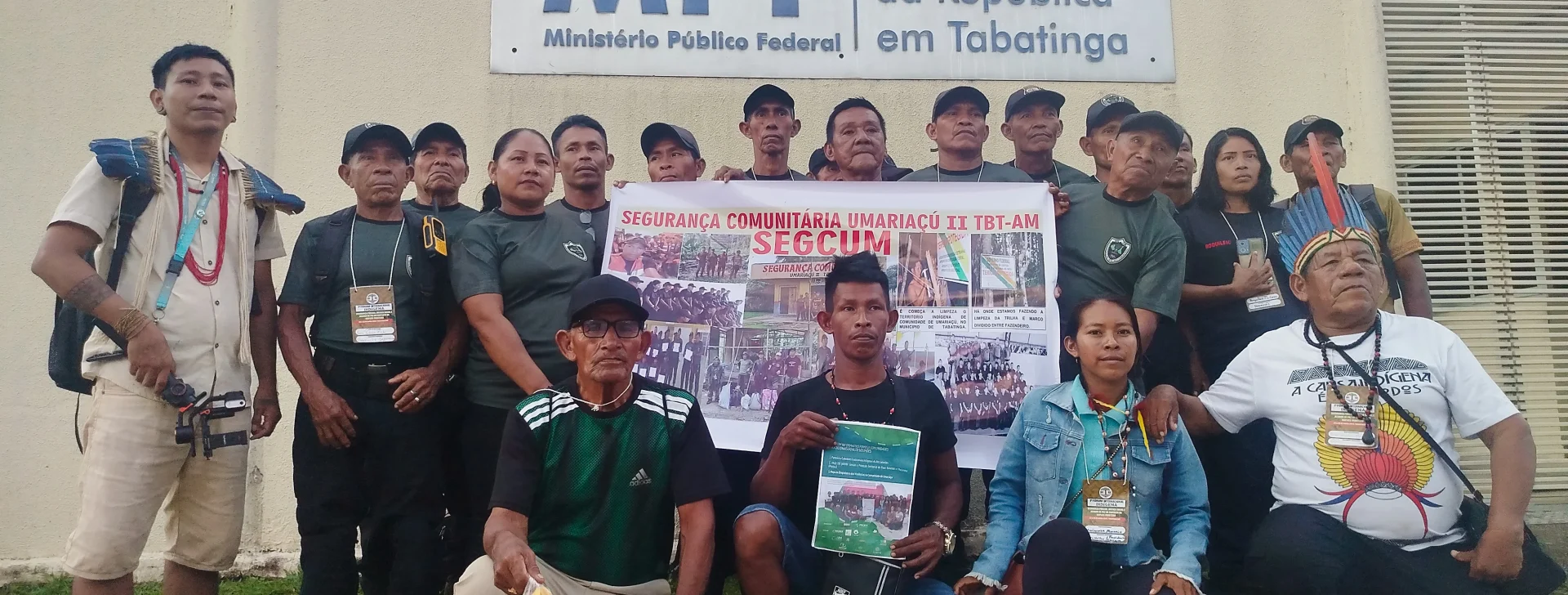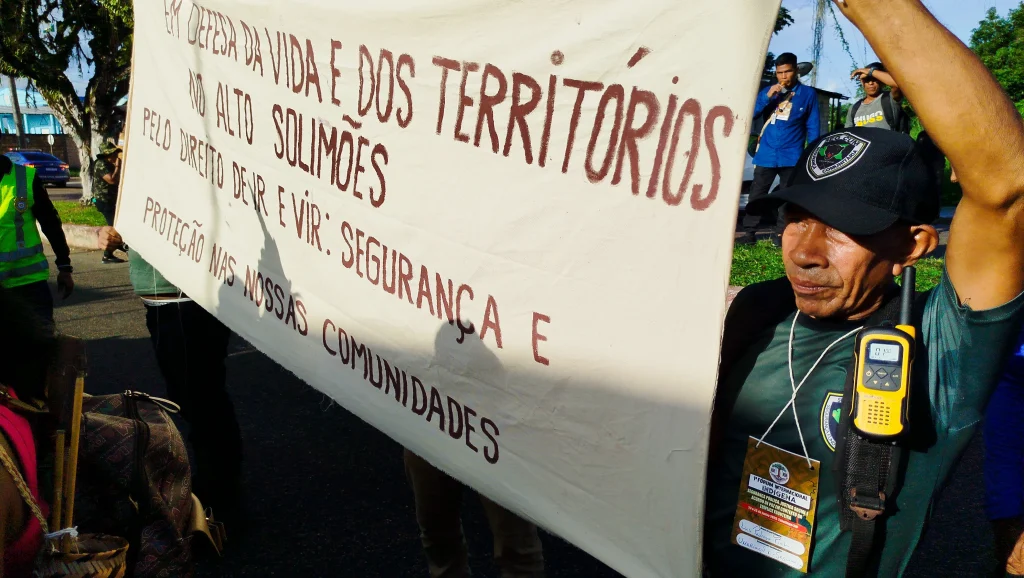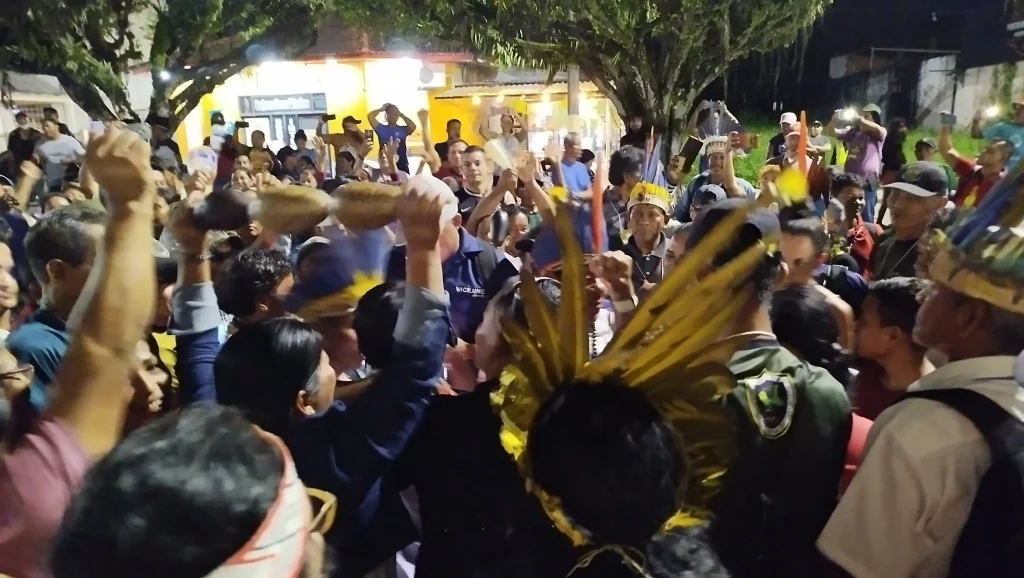Indigenous peoples of Upper Solimões protest for territorial protection
30 de June de 2025

By Lucas Thiago – From Cenarium
MANAUS (AM) – Indigenous peoples from various ethnic groups held a demonstration in front of the Federal Prosecution Office (MPF) in Tabatinga, a municipality in Amazonas located in the Amazonian tri-border area. The protest took place on Thursday, the 26th, with a demand for protection of Indigenous territories in the Upper Solimões region. The group was received by the institution and delivered a document outlining their demands.
In the afternoon, the protesters marched through the streets of the city known as the “Little Princess of Upper Solimões,” chanting sacred songs, performing war rites, carrying signs, and shouting messages of resistance until they reached the MPF headquarters. They criticized the historical neglect of Indigenous peoples by judicial institutions.

About ten Indigenous leaders were received for an emergency meeting with the acting federal prosecutor in the municipality, where they officially submitted the Final Letter of the 1st International Indigenous Forum on Public Security, Social Justice, and Peace Agreements in Border Contexts, held from June 23 to 26 in the city. They also presented specific demands concerning the Upper Solimões Indigenous Territory (IT).
The leaders emphasized that, even after sending an official letter to the MPF three months in advance informing them about the forum, no representatives attended the movement’s meetings. The Indigenous peoples present at the demonstration were from the Tikuna, Kokama, Witoto, Kanamari, Kaixana, Kambeba, Marubo, Mayuruna, and Matsés ethnic groups.
According to the demonstrators, the meeting with the prosecutor revealed that some measures were already underway, such as dialogue with the 6th Chamber of the MPF to reactivate the Anzol Base in the Upper Solimões region. The prosecutor stated that there is ongoing interministerial dialogue and coordination, including joint actions with the Army, Navy, Federal Police, and the National Foundation for Indigenous Peoples (Funai).
The protesters reported to the prosecutor a lack of enforcement along the banks of the Solimões River, which has allowed the expansion of drug trafficking, illegal logging, and predatory fishing, as well as the activity of pirates and criminal factions. As a result, traditional ways of life are deteriorating, with increased violence and alcoholism among Indigenous youth.
The protest also denounced the rapid urbanization of Indigenous territories, with population growth and external pressures occurring without proper planning or public policies tailored to the communities’ specific needs. The leaders demanded the creation of interministerial response protocols, with defined deadlines and direct participation of the communities.
The demonstration concluded in the evening, following the end of the meeting between Indigenous leaders and the prosecutor. Their final demand was that public institutions fulfill their constitutional duty to protect Indigenous peoples and their territories.


